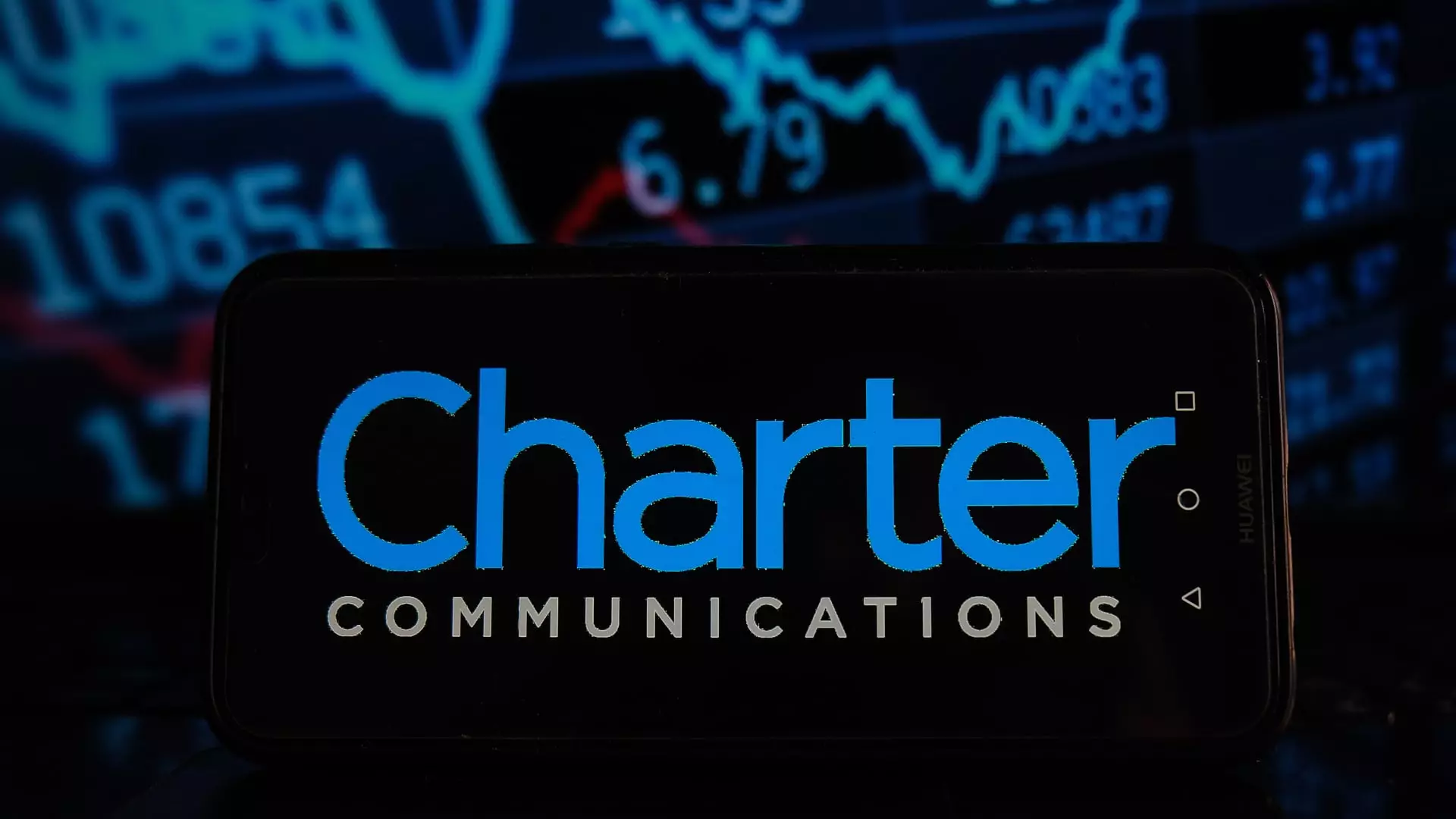In an unexpected yet monumental move, Charter Communications and Cox Communications have announced a merger that could fundamentally alter the landscape of the American broadband market. Valued at $34.5 billion, this agreement is a significant gamble that highlights both the ambition of the companies involved and the pressing need to adapt to the relentless evolution of technology and consumer demands. With this merger, Cox—historically operated by the Cox family—will integrate into Charter, the second-largest cable operator in the U.S., underscoring a pivotal moment for the industry.
The announcement sent ripples through financial markets, boosting Charter’s stock by approximately 8% in premarket trading. Yet, while the initial reaction may appear overwhelmingly positive, the reality is that this merger reflects deeper issues at play: a severe drop in traditional cable subscriptions and intensifying competition from alternative high-speed internet options, notably mobile broadband and fixed wireless services. The cable industry finds itself in a precarious position, caught between traditional business models that are losing relevance and the demand for nimble, innovative solutions.
The Context of Competition
The broadband sector has become a battlefield in recent years as consumers increasingly gravitate toward diverse options. The rise of 5G and alternative fixed wireless services has taken a toll on legacy cable systems, leading to a notable decline in subscriber numbers. Charter recently reported a contraction of 60,000 broadband customers within just a quarter, highlighting an urgent need for innovation rather than mere consolidation.
The merger with Cox reflects a desperate attempt to regain ground lost to wireless providers, but this approach raises critical questions about the future of cable as a viable service model. Instead of stifling competition, this consolidation may inadvertently diminish the variety of options available for consumers. As Charter and Cox pursue an enhanced mobile strategy to retain customers, one can only hope their focus doesn’t drift from providing quality broadband services that consumers expect and deserve.
The Financial Landscape Shifts
The merger is designed to deliver $500 million in annualized cost synergies within three years, hinting at a focus on operational efficiencies rather than direct consumer benefits. This promise raises eyebrows; will these savings translate into improved services, or merely serve to enhance profit margins at the expense of innovation?
Moreover, the fact that Cox will control a significant 23% of the new entity brings up governance concerns. The merger is likely to craft a new wave of boardroom decisions devoid of robust consumer representation. With one company dominating over 30 million broadband connections while the other lags with around 6.5 million, the prospect of equitable service delivery becomes more elusive.
Furthermore, Charter has already engaged in an acquisition strategy with Liberty Broadband, suggesting a trend toward consolidation in an industry not too far removed from monopolistic tendencies. As these companies strengthen their hold on the market, one must question whether competition will wither, leading to higher prices and lower service quality—an all-too-common tale in maturing industries.
A Transformation in Leadership
Upon completion of this merger, there will be a notable shift in leadership dynamics. Charter’s CEO Chris Winfrey will continue to steer the ship, while Alex Taylor, Cox’s CEO, steps in as chairman. This structure further stresses the existing power hierarchies while failing to guarantee that fresh ideas will surface from the combined leadership pool. What is desperately needed in an age of rapid technological change is not just continuity at the top, but innovation that responds more dynamically to consumer needs.
In theory, the merging of these two significant entities has the potential to create a powerhouse that can lead the industry into a new age. However, the jury is still out on whether this synergy will foster genuine improvement or merely become another exercise in market control. As we navigate through this transformation, the call for critical consumer perspectives and advocacy will be vital in holding these entities accountable as they embark on this new chapter.
As the merger process unfolds, the stakes continue to rise, not just for Charter and Cox but for every American seeking reliable internet access. The road ahead is fraught with challenges, and it is incumbent upon consumers, policymakers, and advocates to ensure that this powerful shift serves the public interest rather than solely corporate ambitions.

Leave a Reply